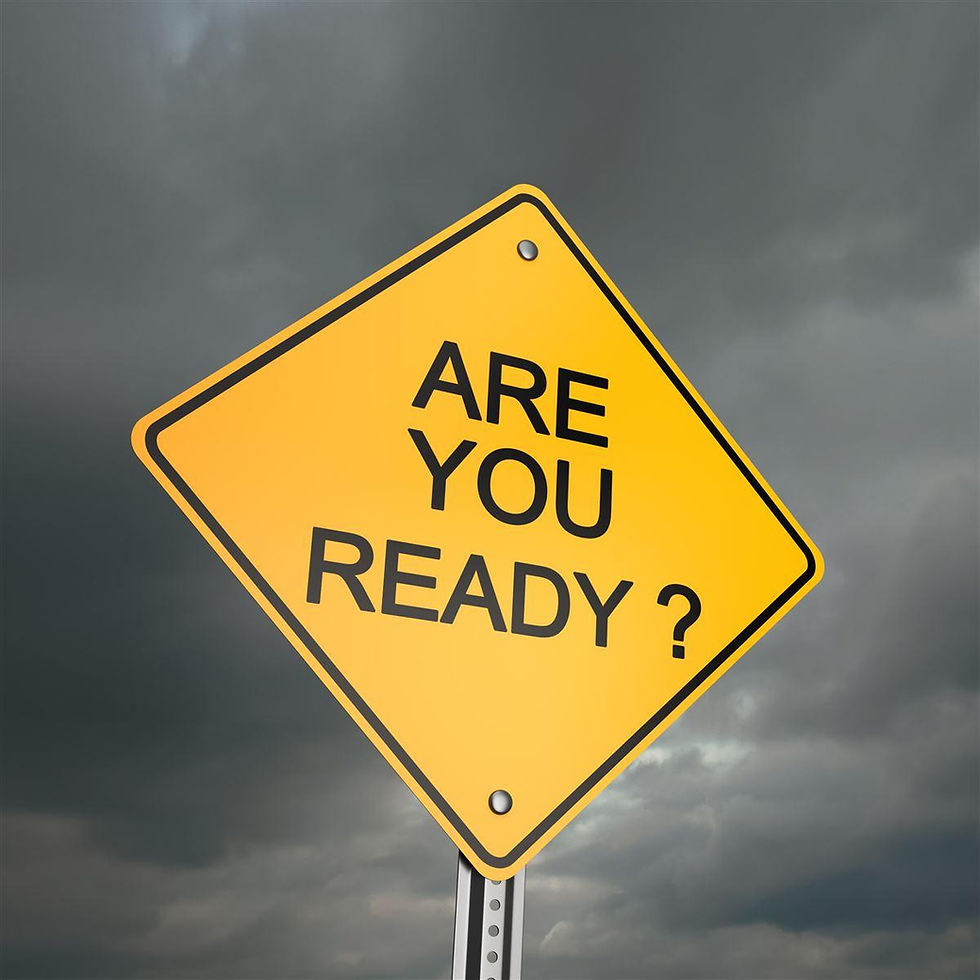Part Three: Preparing for Hurricane Season
- Coastal Equine

- Aug 15, 2018
- 3 min read

Coastal Equine Services is committed to preparing our clients for the challenges that
arise from residing in a hurricane prone area. Every year, we get calls from concerned horse owners who need to make a quick escape. Our vets want to ensure you or your horse doesn't get left behind because of a failure to plan ahead. Remember, it can take 5 days to receive your coggins.
With proper planning and preparation, you can help save your horses lives. We continue this series with 5 more tips to be prepared in the face of a devastating storm:
11. Location. Ideally you should send your horse as far from the shore line and major wind impact as possible. This will vary state to state and city to city. Check with the proper authorities in your area to make sure. Decide on two possible evacuation shelters in different directions. Once you make your choices, make sure you know what the shelters require. 12. Feed. Carry enough feed or hay for each horse to last at least a week. Be certain to have enough water as well.
13.Prioritize. If your trailer does not have the capacity to transport all of your horses, decide NOW which horses you are going to evacuate first. Plan ahead so that you have plenty of time to make necessary round trips long before mandatory evacuations are ordered.
14.Emergency fencing. If your horses are used to being fenced, purchase several rolls of orange plastic wind/ construction fencing and have them available in a safe place. This can be used in a bind to close up any gaps in damaged fencing and put in place with a staple gun.
15.Preparation of barn/stable. Clean up the barn aisles and around the barn. Make sure all loose items such as hoses, rakes, wheel barrows, and the like are properly stored inside the barn or storage area so that these items do not become dangerous projectiles in high winds. If you do not have a covered or enclosed storage option for your equipment, secure everything to your property firmly.
During a storm (if you have horses that will stay). If you cannot move your horses and are in a flood-prone area or expecting high winds, past hurricane experiences have demonstrated that horses left outside where they have the room and ability to move to higher ground are most likely to survive with minimal injury. Those left locked inside a barn or other structure are more likely to sustain serious injuries or die. If you leave your horses in a covered area do not close the doors or gates – you want them to be able to escape to higher ground if water begins to rise. Be certain also that they have access to plenty of safe water and food as it may take a while for you to get back to them. Do NOT leave your horse outside with a halter on. The halter can get tangled and caught in debris and cause serious injury or death.
Prior to storm activity, you should consider the following:
1. Signs. Make two signs each with a full 4’X 8’ sheet of wood or a large flat sheet – using large letters and dark paint spray paint. On one side, paint: “HAVE ANIMALS, NEED HELP;” on the other side paint, “HAVE ANIMALS -- OK FOR NOW.” Store the signs in a safe place for use after the storm has passed. Continued
2. Emergency supplies. You should have a supply of emergency first aid supplies on hand as well as feed, hay, and water in the event the storm wipes out your normal supply. Wrap or store each in water proof containers to prevent contamination.
3. Emergency barn kit. Put together some supplies you may need after a storm such as a chain saw and fuel, hammers, hand saw, nails, screws, fencing materials and fire ant killer (see #7, next section). Place this kit in a secure area before the storm hits.
4. Fire prevention. Turn off circuit breakers to the barn before leaving. A power surge could cause sparks and fire.
5. Protect yourself. If your area issues mandatory evacuation orders and you cannot evacuate your horse to safer ground do NOT stay behind with your horses. Do the best you can for the animals and get out safely. Repeat: Do NOT stay in the barn with your horses.






Comments